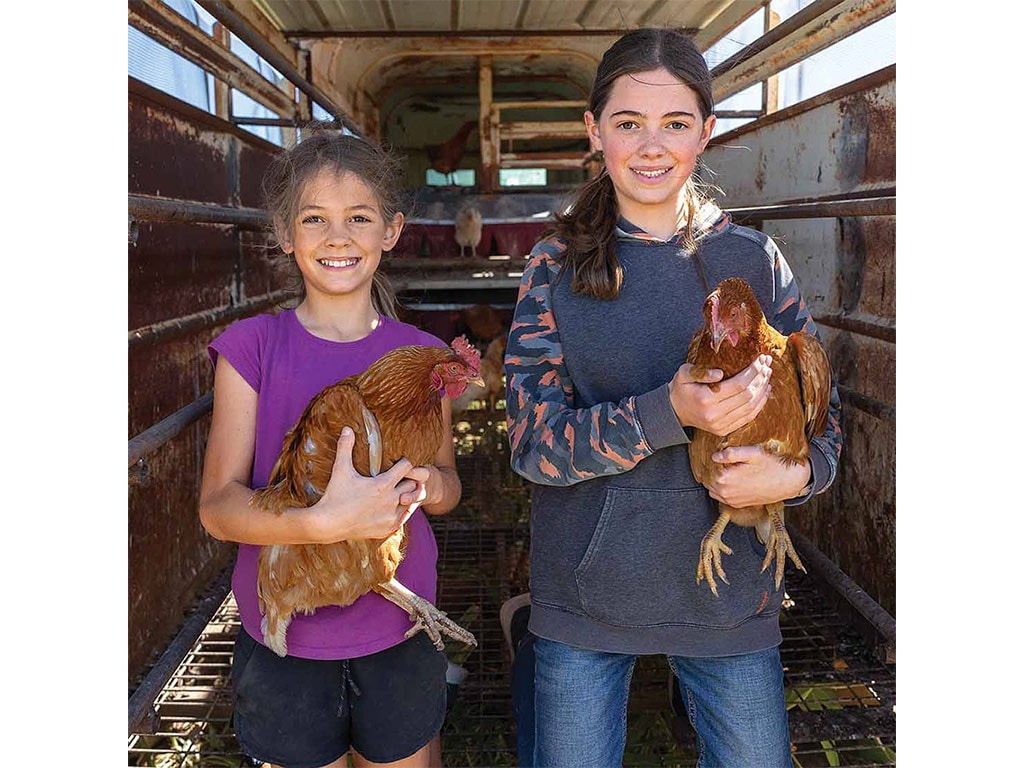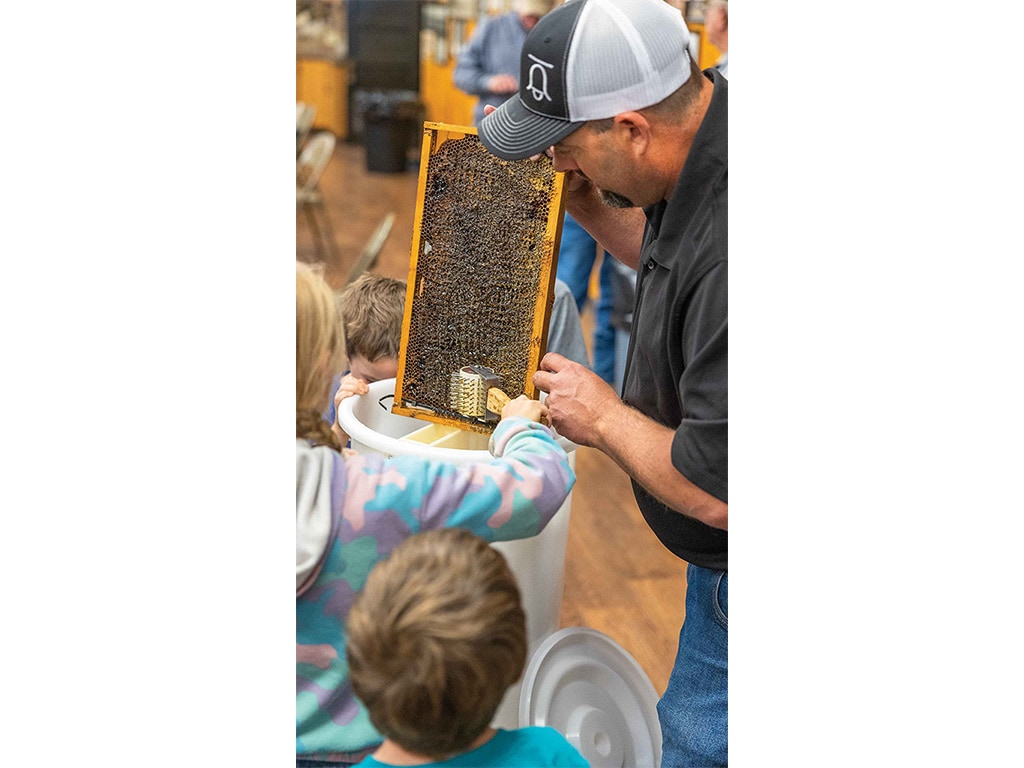Agriculture, Livestock/Poultry March 01, 2024
The Land of Chicken, Beef, and Honey
.
Diversity powers this southwest Kansas farmer's soil health journey.
One hundred fifty years ago, Ford County, Kansas, was rife with bison; the ground covered with prairie grasses. Now, fields of corn, wheat, and grain sorghum blanket the landscape, with one exception: 180 acres of irrigated cropland that Lance and Heidi Feikert own just north of Bucklin. On a late fall day, it's a green oasis—chock full of a mix of cover crops, including sunn hemp, sudan grass, rapeseed, sunflower, buckwheat, and volunteer oats. More than 350 laying hens stroll through the tall cover crops during the day, putting themselves into portable chicken coops at night.
Soon enough, Lance will turn out 35 heifers on the cover crops for at least 100 days of winter grazing. The Feikerts brought cattle back to the operation a decade or so ago, believing grazing animals help jumpstart soil health.
The Feikerts also introduced sheep to their operation several years ago, settling on about a dozen head after drought forced them to reduce their herd in 2022. And, they have five head of milking goats.
All the enterprises complement each other, with revenue from farm-direct sales of meat, eggs, and honey giving each family member a stake in Whirlwind Farms, the Feikert family's operation.
The Feikerts are happy to experiment on this irrigated farm, and they've seen dramatic improvements in water infiltration and resilience in the six years they've owned it.
The care with which they treat this property is not unlike the care they take for their animals.
"The things that are feeding us, we have to take care of them and in doing so, they are giving us a better product," Lance says. "For example, the yolks in our eggs are darker yellow and they taste richer than those you can get from a grocery store, and I can guarantee you the chickens are treated a lot better than the ones you get from the store."
It's the same for beef cattle, sheep, and dairy goats.
"All these things can work in sync and have a synergistic effect," he says.
Above. Landry and Larrah Feikert manage the Feikerts' free-range laying hens. They sell eggs in a wide radius around Bucklin, Kansas. In a demonstration for school kids, Lance Feikert shows how honey is extracted.
Sorghum centered. Lance is part of a commercial farm with his brother, Kyle. Their no-till operation centers around a crop rotation of wheat and water-sipping grain sorghum on a majority of their 3,500 dryland and irrigated acres. It tends to yield more consistently than corn, and the stalks provide excellent winter grazing for cattle and another income stream.
On those grazed acres, Lance provides fence and water. Cows are grazed for about 100 days, depending on weather and grazing quality. It's a win-win scenario; the soil biology gets a jolt from manure, urine, and hoof action, while cattle thrive.
"The cows gain a body condition score," says rancher Mark Lohrding, who brings spring-calving cows to Feikert from the Lohrding 3 Bar Ranch near Protection, Kansas.
Despite being a staunch advocate of no-till, Lance isn't sold on planting cover crops on all acres. Every drop of moisture that falls in Ford County is precious; the area gets some 23-inches of precipitation on average. Cover crops could consume some of that soil moisture, and that could make the difference between cash crops thriving and dying.
In general, by the end of July he has a good feel for whether there is enough moisture to establish a cover crop, yet also be able to grow grain sorghum the following spring.
"I have friends who plant a cover crop after wheat and just go for it. But they're a little more optimistic than me," he says with a laugh.
But Feikert believes in the value of crop residues protecting soils from evaporation. Residue helps catch and store precipitation, which leads to better chances of success in the next crop.
"If I have residue, and we get moisture, I have a better chance to get seed germinated to get a crop going than if I have zero residue and that ground dries up in three or four days," he says.
Five generations. The tug-of-war between Ford County farmer and Mother Nature has been waged by the Feikert family since they settled here in 1894. Lance takes great pride in being one link in that legacy.
He and Heidi hope they are building a solid future for their children, should they choose to return to Whirlwind Farms.
"My ancestors survived doing something more difficult mechanically, physically and mentally than I'm doing now," he explains. "But then I look at the farm and the next generation and hope I'm providing them the same opportunity." ‡
Read More

AGRICULTURE, FARM OPERATION
One Groovy Garlic Farm
Plus, a bonus: Grassfed lamb!

AGRICULTURE, EDUCATION
Outsmart Old World Bluestem
Summer burns and timely herbicide application can beat back this problem weed.



